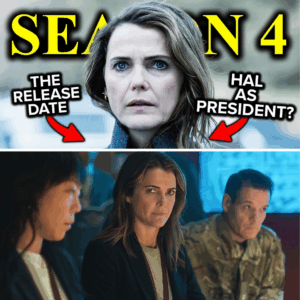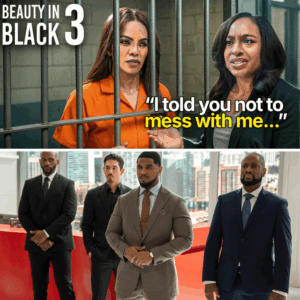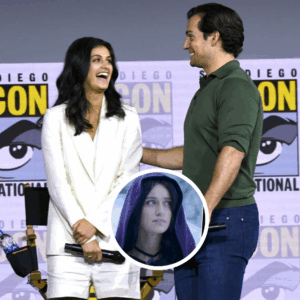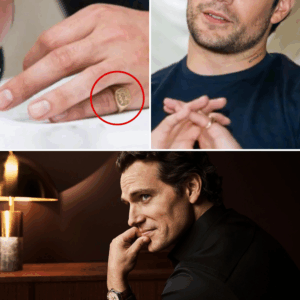In the twilight of her life, Queen Elizabeth II, Britain’s longest-reigning monarch, reportedly expressed deep regret over the fractured relationship with her grandson, Prince Harry, and his wife, Meghan Markle. According to royal biographer Sally Bedell Smith, citing the Queen’s first cousin and confidante, Lady Elizabeth Anson, the monarch described the situation surrounding Harry and Meghan as a “complete catastrophe” in a private conversation just weeks before her passing in September 2022. These four words, revealed through Bedell Smith’s Substack newsletter, Royals Extra, have sent shockwaves through royal circles, offering a rare glimpse into the Queen’s private sentiments about the Duke and Duchess of Sussex. This article explores the context of these remarks, the events leading to the breakdown of their relationship, and the lasting impact on the royal family, drawing on credible sources and insights into the monarchy’s inner workings.
A Strained Relationship: Tensions Before the Wedding
The seeds of discord between Queen Elizabeth II and the Sussexes were sown well before their dramatic exit from royal life in 2020, commonly referred to as “Megxit.” According to Bedell Smith, Lady Elizabeth Anson, who died in November 2020, shared details of the Queen’s concerns as early as 2018, during the planning of Harry and Meghan’s wedding. Anson, a trusted confidante who affectionately called the Queen “Jemima,” revealed that Harry’s behavior during these preparations caused significant distress. One notable incident involved Harry’s request for the Archbishop of Canterbury to officiate the wedding at St. George’s Chapel without first securing permission from the Dean of Windsor, who held ecclesiastical jurisdiction. Anson noted, “Harry seems to think the Queen can do what she wants, but she can’t… On the religious side, it is the Dean of Windsor’s jurisdiction.” This breach of protocol left the Queen “really upset,” with Anson reporting that Harry was rude to his grandmother for nearly ten minutes during a meeting, a revelation that shocked her.
Additionally, Meghan’s reluctance to share details of her wedding dress with the Queen further strained their relationship. As head of the Church of England and a figure deeply invested in the traditions of royal weddings, the Queen sought assurance that the dress would be appropriate for the globally televised event. However, Meghan’s refusal to disclose these details left the monarch feeling “very left out,” according to Anson. These early tensions were compounded by concerns about Meghan’s demeanor, which Anson described as increasingly “bossy” as the wedding approached. Initially charmed by Meghan’s intelligence and thoughtfulness after her 2017 engagement to Harry, the Queen and her inner circle grew wary, with Anson stating, “The jury is out on whether she likes Meghan.”
Anson’s candid assessment of the couple painted a complex picture. She reportedly told Bedell Smith, “It’s worrying that so many people are questioning whether Meghan is right for Harry. The problem, bless his heart, is that Harry is neither bright nor strong, and she is both.” This perception of Harry’s vulnerability and Meghan’s assertiveness fueled concerns within the royal household, with some believing Meghan had “engineered” the relationship for personal gain. These sentiments, while private, underscored the Queen’s growing unease about the couple’s compatibility with royal life.
The Royal Exit: A Deepening Divide
The tensions that began during the wedding preparations escalated dramatically when Harry and Meghan announced their decision to step back as senior royals in January 2020. The announcement, which caught the royal family off guard, was dubbed “Megxit” by the media, a term that echoed the seismic impact of their departure. The Queen was reportedly “devastated” by the suddenness of their decision and deeply disappointed that they did not bring their son, Archie, to the UK for their final engagement on Commonwealth Day in March 2020. Anson noted that the Queen had hoped to see her great-grandson, and the couple’s choice to leave Frogmore Cottage—a wedding gift from the Queen that required her to sacrifice some of her privacy—further compounded her hurt. “It was a big give,” Anson said, reflecting the sentiment that the Queen felt the couple did not fully appreciate her gesture.
The Queen’s public response to Megxit was characteristically measured. In a rare personal statement issued after the “Sandringham Summit” on January 13, 2020, she expressed support for Harry and Meghan’s desire for a more independent life, stating, “Harry, Meghan and Archie will always be much loved members of my family.” However, she acknowledged the challenges they faced due to intense media scrutiny and emphasized a “constructive and supportive way forward.” Behind closed doors, however, the Queen was grappling with feelings of betrayal, particularly as the couple’s departure was seen as an affront to the institution she had dedicated her life to serving.
The Oprah Interview: A Point of No Return
The fracture in the relationship reached a breaking point with Harry and Meghan’s 2021 interview with Oprah Winfrey, which aired just 33 days before Prince Philip’s death on April 9, 2021. The interview, watched by millions worldwide, included explosive allegations, including Meghan’s claim that a senior royal had expressed concerns about “how dark” Archie’s skin might be before his birth. This accusation of racism within the royal family deeply dismayed the Queen, who was reportedly “as angry as I’d ever seen her,” according to a former staffer. The couple’s decision to name their daughter Lilibet—using the Queen’s childhood nickname—without her explicit permission further strained relations. A source told The Daily Beast that the Queen felt “betrayed” by the interview, which attacked the monarchy at a time when her health was declining and her husband was gravely ill.
The Queen’s response to the interview was succinct but pointed. In a statement issued on March 9, 2021, she said, “The issues raised, particularly that of race, are concerning. While some recollections may vary, they are taken very seriously and will be addressed by the family privately.” The phrase “some recollections may vary” was widely interpreted as a subtle rebuke of Harry and Meghan’s claims, signaling dissent within the royal family. The interview marked a turning point, with one former courtier stating, “Things were never the same” after the Sussexes’ public criticisms.
The Queen’s Final Reflections
In her final weeks at Balmoral Castle, as her health deteriorated due to bone cancer, Queen Elizabeth reportedly opened up about her regrets regarding Harry and Meghan. According to Bedell Smith, during a private gathering, the Queen spoke candidly to a small group, describing the situation as a “complete catastrophe.” This uncharacteristic candor, coming from a monarch known for her discretion, underscored the depth of her disappointment. The Queen, who had hoped Harry and Meghan would represent a modern, progressive Britain as Commonwealth ambassadors, felt let down by their decision to step away and the subsequent public fallout.
Lady Elizabeth Anson’s insights, shared before her death in 2020, provided further context for the Queen’s sentiments. Anson suggested that the Queen was not only hurt by Harry’s actions but also concerned about his vulnerability. “Harry is besotted and weak about women,” she reportedly said, expressing doubts about Meghan’s intentions. These remarks, while harsh, reflected the broader concerns within the royal household about the couple’s impact on the monarchy’s stability.
The Lasting Impact on the Royal Family
The Queen’s death in September 2022 marked the end of an era, and with it, any hope of reconciliation between Harry, Meghan, and the royal family became increasingly remote. The couple’s decision to settle in Montecito, California, and pursue commercial ventures, including Netflix series and Meghan’s lifestyle brand, American Riviera Orchard, signaled a permanent shift away from royal duties. While Harry has expressed a desire to maintain ties with his family, his legal battles over security arrangements in the UK and his public criticisms of the monarchy have deepened the rift.
The Queen’s reported words—“complete catastrophe”—encapsulate the profound sense of loss and regret that defined her final years. Her hopes for a united royal family, with Harry and Meghan playing a central role, were dashed by a series of missteps, misunderstandings, and public confrontations. The monarchy, under King Charles III, now faces the challenge of moving forward without the Sussexes, while the public continues to speculate about the possibility of reconciliation.
Conclusion
Queen Elizabeth II’s four-word summation of Harry and Meghan’s saga as a “complete catastrophe” reveals the depth of her personal and institutional disappointment. From early tensions during their 2018 wedding preparations to the seismic impact of Megxit and the Oprah interview, the relationship between the Queen and the Sussexes was marked by a series of ruptures that proved irreparable. Drawing on the accounts of Lady Elizabeth Anson and royal biographer Sally Bedell Smith, it is clear that the Queen’s private sentiments were far more complex than her public composure suggested. As the royal family navigates its future, the echoes of this “catastrophe” continue to shape the monarchy’s narrative, underscoring the challenges of balancing tradition with modernity in an ever-changing world.





